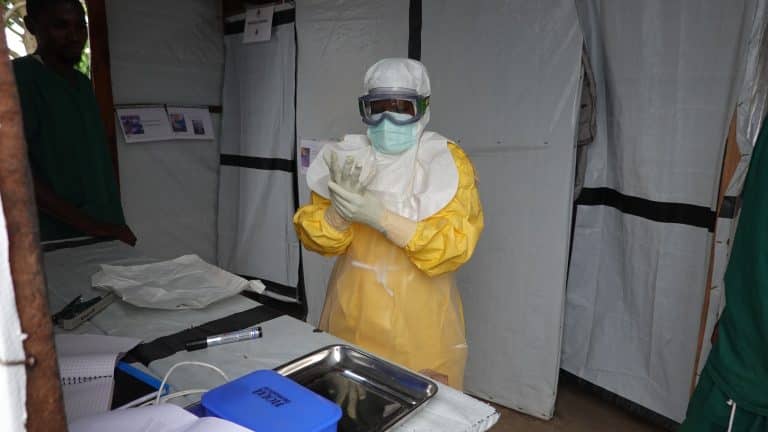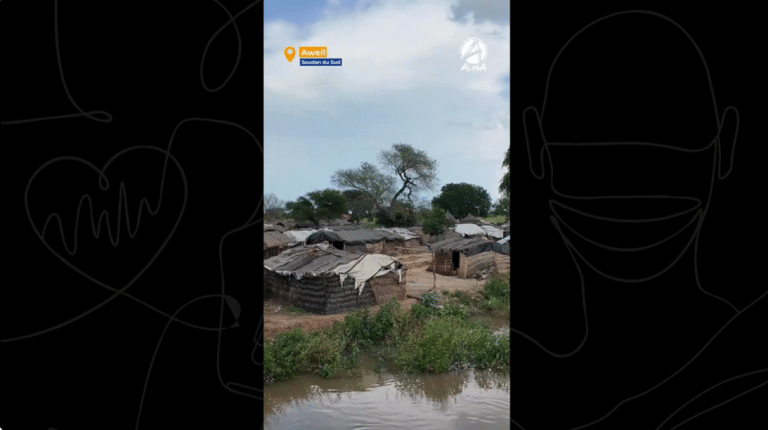Diphtheria
Diphtheria is a severe bacterial disease that primarily affects the respiratory tract. Once largely controlled through vaccination, it is now making a worrying comeback, particularly in parts of Africa where vaccination coverage is insufficient.
ALIMA (The Alliance for International Medical Action) is on the frontlines to rapidly detect cases, treat patients, and limit the spread of the disease through vaccination campaigns and targeted community actions.
What is diphtheria?
Diphtheria is an acute infection caused by the bacterium Corynebacterium diphtheriae. It mainly affects the mucous membranes of the throat and nose, and in some cases, the skin. The toxin released by this bacteria can cause serious complications, including breathing difficulties, paralysis, and heart damage.
Case fatality rate: between 5% and 10%, up to 20% in young children without appropriate treatment.
How is diphtheria transmitted?
Diphtheria is highly contagious and spreads through the respiratory route or direct contact with an infected person.
It is transmitted primarily through:
- Respiratory droplets from coughing or sneezing
- Contact with contaminated objects or surfaces (e.g., utensils, toys, clothing)
- Direct contact with infected skin lesions
Overcrowded environments and low vaccination rates significantly increase the risk of an outbreak.
What are the symptoms of diphtheria?
Symptoms typically appear 2 to 5 days after exposure.
Respiratory form (most common):
- Sore throat
- Moderate fever
- Difficulty swallowing
- Presence of false grayish membranes in the throat (risk of asphyxiation)
- Muffled voice
Cutaneous form:
- Chronic ulcerations
- Painful, oozing sores
Possible serious complications:
- Inflammation of the heart muscle (myocarditis)
- Paralysis
- Severe breathing difficulties
Take action
Support the fight against diphtheria
Your support enables ALIMA to respond quickly, save lives, and prevent future outbreaks.
Diphtheria treatment and prevention
Recommended treatment:
- Diphtheria antitoxin administered as early as possible
- Antibiotics (erythromycin or penicillin) to eliminate the bacteria
- Patient isolation and treatment of close contacts
- Monitoring potential complications
Vaccination: the best prevention
The pentavalent vaccine (protecting against diphtheria, tetanus, pertussis, hepatitis B, and Haemophilus influenzae type b) is safe and effective.
- First dose as early as 6 weeks of age
- Booster shots needed in adolescence and adulthood
- Vaccination coverage of at least 90% is crucial to prevent outbreaks
Diphtheria in Africa: an ongoing threat
Although diphtheria has nearly disappeared in high-income countries, it continues to claim victims in several parts of Africa. This resurgence is linked to several factors:
- A fragile Expanded Program on Immunization (EPI), with insufficient coverage rates
- Conflicts and mass displacement
- Lack of access to essential healthcare
- Breaks in the cold chain, which compromise vaccine effectiveness
ALIMA's action against diphtheria
Emergency response and prevention
In collaboration with local health authorities, ALIMA is taking action to:
- Rapidly detect and diagnose suspected cases
- Isolate and treat patients
- Conduct epidemiological investigations
- Protect contacts and limit breaks in the chain of transmission
Strengthening prevention efforts:
- Organizing mass vaccination campaigns
- Raising community awareness about the importance of vaccination
- Training of healthcare workers
Intervention examples:
On the ground
Related news

Three Months to Eradicate Ebola: The Power of Collective Action in Kasai
After three months of collective mobilization, the 16th Ebola outbreak in the Democratic Republic of the Congo (DRC) was declared over on November 30, 2025.

South Sudan: when the climate crisis becomes a health crisis
In Aweil, recurring floods cut off entire villages. Malaria, diarrhea, pneumonia: children are on the front lines. Since 2025, ALIMA has been deploying an emergency

Ebola in Kasai: A Race Against Time!
Since late August, a new Ebola outbreak has struck Kasai in the Democratic Republic of Congo. With 40 deaths already and more than 1,400 contacts


